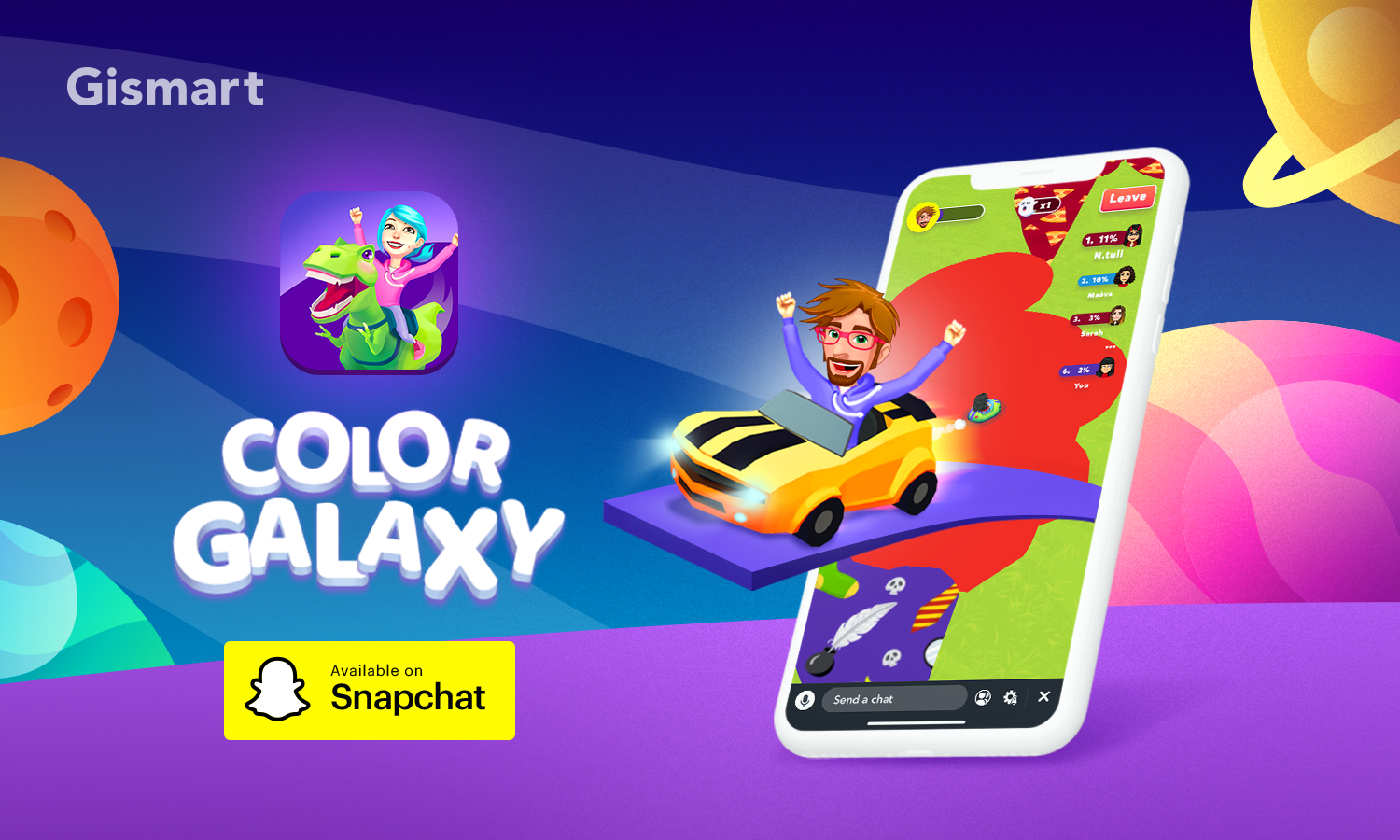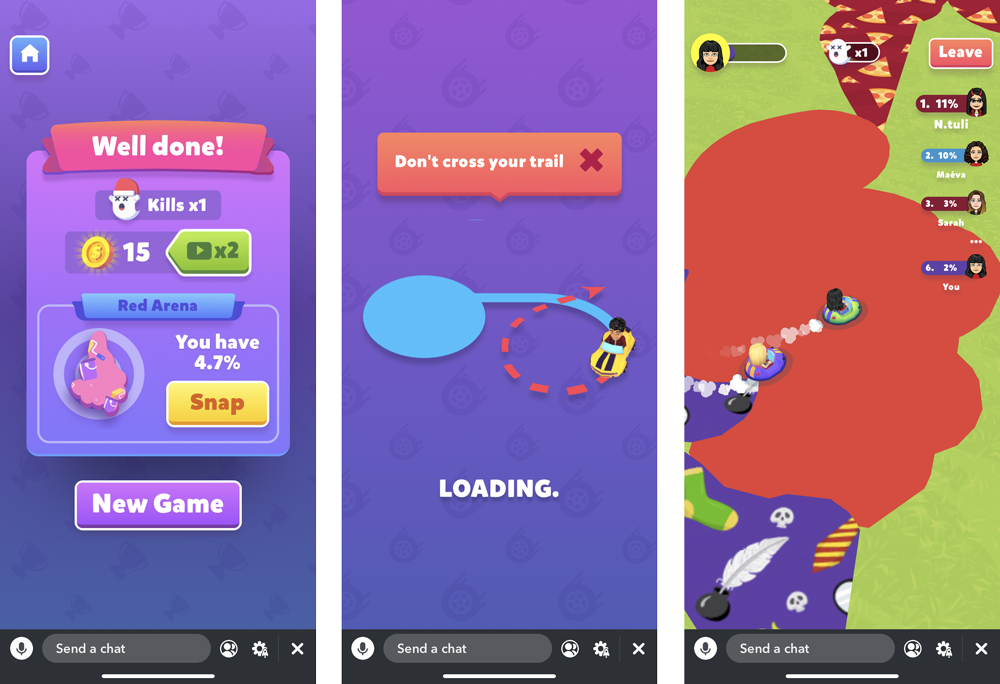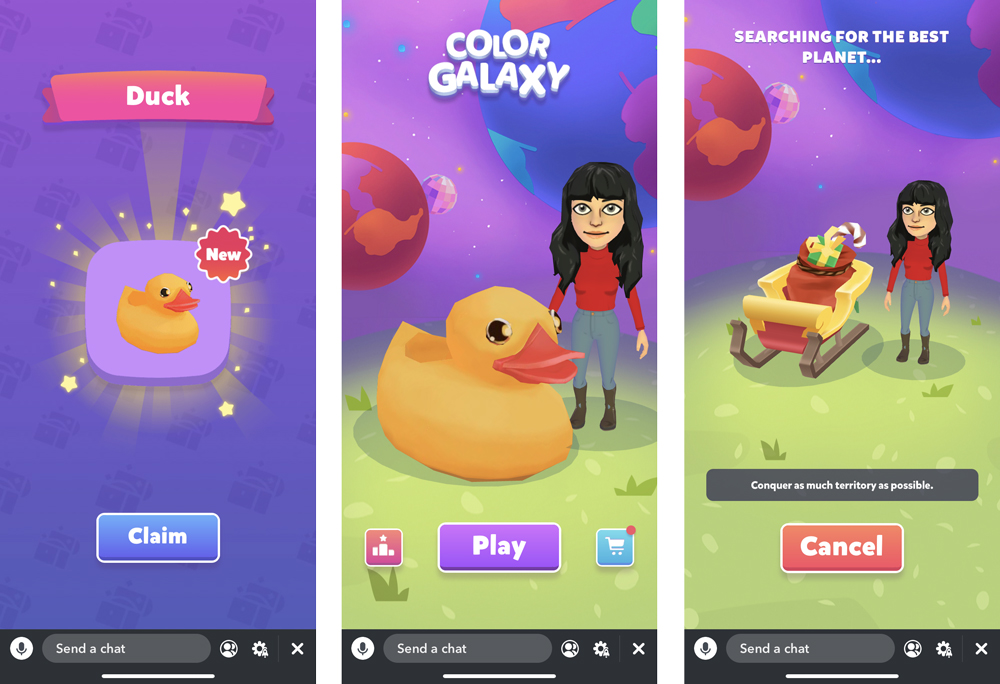Belarusian-British Gismart continues its active expansion into mobile gaming. The company recently announced a partnership with Snap Inc. The first project in the framework of cooperation, Color Galaxy, has already been released on the Snapchat platform. She shared her experience with the Gismart platform in an interview for App2Top.ru .
The questions were answered by Svetlana Meisak, Vice president for business Development and marketing of the company, and Alexey Avdey, head of the mini-games team at Gismart.

Svetlana and Alexey
Alexander Semenov, Senior Editor App2Top.ru : I’ll start with a question about the company. Last spring, you actively started game development. We launched a hypercausal direction headed by Andrey Mikhlin. Now announced the release of a multiplayer game for Snapchat. Aren’t you afraid that it blurs the focus a little for you?
Svetlana: The partnership with Snapchat is experimental for us, we have not changed our strategy for it. Our focus in general is the mobile games market, and mini—games is a small division under which the team was formed. (On App2Top.ru we call titles that run directly in the application “instant”, that is, they do not require downloading a separate distribution. — Ed.)
We have about eight teams in the mobile development division. Within its framework, we are actively engaged in hyper-casuals, we have several successful launchies over the past six months. Plus, we have now taken up the issue of idlers: over the past three months, we have released three idlers, a fourth is on the way.
The team that makes mini-games is a separate direction that works exclusively in this niche. We have projects on Facebook Instant Games, and now we are preparing to release a mini-game for the Chinese market on one of the fastest growing entertainment platforms.
So there is no blurring.

How did the story of the appearance of the game on Snap Games begin?
Svetlana: We have historically had a good relationship with Snapchat. We are long-standing partners. For example, we have been buying traffic for our apps and games on Snapchat for a long time.
Shortly before the official announcement of Snap Games, we learned that Snap Inc. is preparing to launch its own gaming platform. It became interesting to us, we talked informally with colleagues from Snapchat. After the conversation, we were already contacted by the team that is directly involved in the Snap Games platform.
It turns out that it was you who took the initiative.
Svetlana: Yes, but still the interest was mutual. It was interesting for us to be one of the first to be on Snap Games. As for Snapchat, he wanted to see among his partners a solid company that will not let you down, which has good production, resources, and experience in mini-games.
They were looking for developers with expertise relevant to Snap Games. We had it. As I mentioned earlier, even before the negotiations with the platform, we formed an experienced team specializing in mini-games. It was headed by Alexey. Before working with us, for example, he launched projects for the Facebook Instant Games platform, which were among the most successful at the time.
Once we touched on the topic of Instant Games, let’s talk about it a little. She “didn’t go.” At one time it was in the trends, but today many people do not want to remember it. At the same time, Snap Games works on a similar principle to Instant Games: the user starts the game from a chat with his friend. How does the Snapchat solution differ from it, why do you believe in it?
Alexey: The most serious difference: Snap Games is a closed platform. Snapchat has no plans to open it to all developers.
The second is their approach to the quality of games. If anyone can upload anything to Facebook Instant Games now, which reduces the quality of games on the platform, then Snapchat has the opposite approach. He treats every game carefully. The product may not be released even after the soft launch stage. Snapchat’s approach to games is rather more like the one peculiar to publishers. The Snapchat team makes sure that the game matches the platform, so that there are no similar games on the site, so that each game is unique.
Svetlana: Facebook initially had a more mass approach, and Snapchat focused on exclusivity, but they are also more willing to develop this topic and each game. This means that the relationship between the platform and the developer is completely different, and Snap Games partners have much more opportunities.
Snapchat has a different audience compared to Facebook, it is younger, female, more open to new monetization practices. And since there is little competition between projects, it is easier to work with the audience here than on Facebook.

Do I understand correctly that there are less than a dozen projects in Snap Games right now?
Svetlana: There are 12 games there now, some of them Snap’s own games. The rest, including ours, are from partners. For those companies whose games are currently there, this is, of course, a winning situation.
I will add more to what Alexey said about the selection of games. At the pitching stage, if your idea resembles a game they already have, they immediately talk about it. Say, let’s do something else. This is beneficial, including to the developer, because at the release you, in fact, do not have a competitor in your niche.
Alexey: If we talk about the advantages of the platform, it is also worth noting its virality, which would be impossible without a very deep integration of the platform itself into games. Users, for example, can fumble fragments of gameplay in their story. This is also done by influencers and celebrities, which leads to large amounts of traffic in games.
Does Snapchat itself promote games in any way?
Alexey: Yes, there is a feature on the platform. For example, the rocket icon is highlighted in the menu, which opens a panel with Snap Games. Also, every new product is highlighted in the search. We are definitely seeing a boost at the start. And it is bigger when compared with the feathering that Facebook usually gives within the framework of Instant Games.
A little earlier, Sveta mentioned pitching. How did it happen with you? And did Snapchat representatives express their wishes before that? If so, how tough is it?
Svetlana: In our case, there was no rigidity: we prepared a pitch of five concepts (mockups). They have already chosen from this what suits them best. Then there were additional discussions in which topics such as the quality of content, additional elements, stylistics, and so on were touched upon. Snap pays special attention to the choice of the art component of the game. In addition, we actively talked about what technologies to use in development. Snap has many good solutions and products of its own, and together we discussed which solutions are best suited to our case. For example, they liked our ideas about the personalization of the game, starting with Bitmoji (this is a personal avatar), and ending with other content that allows you to make each player’s experience unique.
How long did this preparatory period take?
Svetlana: The choice of the game from the discussion of ideas to the moment when we finally settled on the Color Galaxy concept took three to four weeks. Everything was moving fast enough. Snapchat quickly gave feedback. Since Snap Games is a young platform and the number of partners is small, they spend a lot of time communicating with everyone.

A little higher, the topic of technology was touched upon. What was the game developed on as a result?
Alexey: Snap Inc. recently bought PlayCanvas and, accordingly, offered to use its solution for development. We refused, decided to do it on the BabylonJS framework, since we already had experience developing on it, the team was formed specifically for it. They also demanded a multiplayer server and recommended their products to us. Due to the fact that the technology stack was not very suitable for us, we decided to use our infrastructure and write servers on Node.js .
How big a team developed the game?
Alexey: On average — 10 people.
How is the game monetized?
Alexey: Through rewarding advertising. The platform is fully responsible for the advertising itself. They use their SDK, just like the Facebook Audience Network, to place bids for advertising, we just request it from Snapchat.
Due to the fact that all monetization is based solely on rewarding advertising, complex meta is required in games. Snapchat loves games with deep meta.
Svetlana: The difficulty of working with Snapchat relative to working with other platforms is that it very closely monitors the advertising approaches used, does not allow resorting to aggressive practices. Snapchat protects its users.
The last question is about expectations. How likely is the scenario that the revenue from Snap Games for your company will reach the same level as the revenue that the hyper-casual direction brings?
Svetlana: This is impossible because these markets are completely different in volume. Working with Snapchat for us first of all means reaching a new audience, in general, a new interesting experience (we have never worked on real—time multiplayer games before) and, of course, an opportunity to strengthen our brand.
